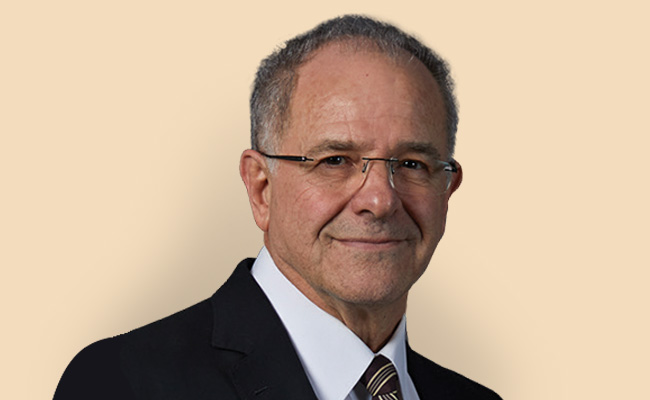Truworths’ shareholders might have a bus problem on their hands. You know, that situation where you could be in a bit of a bind if something happens to someone crucial.
The “bus factor” is actually a real concept. As Wikipedia explains, it’s “a measurement of the risk resulting from information and capabilities not being shared among team members”. And it’s about as good a description of Truworths CEO Michael Mark as you’re likely to come across.
Mark has been CEO of Truworths since 1991 – seven years before it listed. He’s largely responsible for building up the company to what it is today. But 34 years later, Mark, who is 72, is still firmly in charge. And that’s despite long blowing past the official retirement age for executive directors, which is 60.
At the same time, Truworths’ recent weakening financial results have thrown into sharp question the performance of the retailer’s highly-paid executive team.
It’s not that Mark hasn’t tried to break free – apparently. But, bizarrely, the board simply doesn’t seem able to find the right person to replace him.
Their first attempt was all the way back in 2014 when Mark told the board he wanted to retire and “explore the world in a different way”.
At the end of 2014 Truworths announced that French fashion retailer Jean-Christophe Garbino had been appointed with a view to taking over. He joined Truworths as CEO designate in March 2015. It seemed like a smart idea at the time. Truworths’ results weren’t looking good, its credit-based business model (70% of sales are on credit) seemed vulnerable and the whole sector was facing tough competition from new international players such as CottonOn, H&M and Zara. Time for somebody new.
Then, after nine months of shadowing Mark, Garbino abruptly quit. “It just didn’t work out,” Mark – not the chair – told a Sunday Times journalist at the time, denying that it had anything to do with him deciding not to let go. It was, said Mark back in 2015, much more to do with the fact the board had a view on where the business needed to go and who needed to take it there.
So, he put his plans to explore the world on hold and life at Truworths continued with him at the helm. The board assured investors on a regular basis it was committed to finding a replacement, such as its statement in 2018: “Shareholders should be assured that succession planning for key executive roles, in particular the position of CEO, is a high priority.”
So, in 2018 when group CFO David Pfaff assumed additional responsibilities as chief operating officer (a role created for him) it did look as though Mark might soon be on the move. In early 2020 Mark said he would resign at the end of 2022.
However, in December 2020 Pfaff rather abruptly announced he was resigning. Another plan kiboshed.
Keeping alive hopes of a successor, the board then confirmed that Sarah Proudfoot, a member of the five-person executive team, was a candidate for the CEO job.
So it wasn’t a huge surprise when in January 2021 Proudfoot was promoted to a newly created position, deputy managing director. Later that year Emanuel Cristaudo was appointed CFO. And then in late 2022 Proudfoot and Cristaudo were appointed joint deputy CEOs. And that’s pretty much where we are today.
You can see a pattern emerging here. Everybody, apparently including Mark, realises he has to go, so plans are put in place, people are appointed, the board gets to assure shareholders how seriously it takes succession.
And then, well, nothing.
Recently there was some talk around ex-Massmart chief Grant Pattison, who spent four months at Truworths (between January and April this year) as an “executive contractor”.
Pattison’s LinkedIn CV details the stint, but he is soon to join Pick n Pay as a non-executive director – after his restraint of trade, presumably from Truworths, expires.
Asked about the succession status, group chair Hilton Saven and lead independent director Hans Hawinkels tell Currency the board has asked Mark “to stay on for a while longer until he transitions to a consultancy arrangement within the group”.
As for the timing, “the exact date of the transition has not yet been determined”, they said.
Investors will have to wait for more detail in the retailer’s 2025 annual report which will, apparently, be discussed with shareholders at the AGM on November 6.
Saven and Hawinkels say there are lots of good reasons for delaying Mark’s departure, which boil down to Truworths being a large and complicated business operating across Africa and the UK.
But it’s a curious line to take, given that equally complicated businesses, such as Anglo American, Capitec, FirstRand and Standard Bank, have had very clear succession plans in place, with CEO tenures nowhere near Mark’s record 34-year run.
‘Soft’ results
It’s not as if Truworths is shooting the lights out, either. Over 10 years, its shares have slid 35% in value. Full-year results to the end of June showed a 7% drop in headline earnings, taking them back to 2022 levels.
In a research report this week, SBG Securities described the results as “soft”, pointing out that the company has lost 150 basis points of market share in the year, equivalent to a sales loss of about R3.2bn since 2021.
“In our view, the market is hesitant to reward a group that has been incrementally losing market share, regardless of its relative margin and inventory management. Our analysis since [2021] finds steep market share losses in menswear, while kids, Identity and womenswear outperform the market during periods of credit extension and underperform over periods of conservative credit granting,” SBG said.
While Truworths’ credit book seems healthy, the reality is its peers are stealing market share even on credit sales, given that new applications have flatlined since 2021/22. “To reignite sales growth, we believe management will need to adjust their appetite, particularly within the low-income [and] high-risk segment,” SBG said.
Nonetheless, SBG Securities believes much of the bad news is already priced in; the stock is down 46% year to date alone, and they’ve tipped it as a “buy”.
And after all, it is a great dividend payer.
It’s true that the retailer has been operating in a stagnant growth environment with consumers’ disposable income under stress for more than a decade, which has especially hurt the company’s credit-based model.
This “nuance”, together with Truworths’ “elevated product and pricing, and the reality that Truworths sells premium quality to … middle-class customers”, makes it “even more complex to operate in such a constrained environment”, Saven and Hawinkels say.
You can understand why, in 2015, Truworths looked offshore and splashed out R5.5bn for UK footwear chain Office. It turned out the timing was disastrous. First came Brexit, followed quickly by Covid. Truworths had to write off R5bn.
But Office has come right and is now the group’s star. In 2025 the UK business contributed close to 40% of group profits, and the board has targeted 45% of group profit from Office in the next four to five years.
Saven and Hawinkels say that because Mark is personally very actively driving aggressive expansion plans in the UK (with the UK team) and is “primarily responsible for some of the new strategic initiatives within Truworths Africa”, his continued leadership is critical.
That sounds reasonable. Except, it also sounds a bit familiar. Back in 2015 Mark was needed to help the group deal with “challenging times” and in the 2020s he was needed “to steer the company” through and after Covid. Let’s face it, when has the world ever felt challenge-free?
And so the search for a successor continues.
In addition to the two joint deputy CEOs (one of whom is 65) the nominations committee has identified several internal and some external candidates as possible successors to Mark and to join the top executive team. “Furthermore, each of the internal candidates (in addition to the joint deputy group CEOs) is being prepared for possible succession as will any external candidates once they are appointed”, say Saven and Hawinkels.
‘Independent’ directors
Truworths’ code-defying governance extends well beyond the record it has set for CEO tenure. It also persists in describing very long-serving directors as independent. Chair Saven is “independent” though he was appointed to the board 22 years ago. Rob Dow, on the board since 1998, is “independent”. Roddy Sparks, on the board since 2012 is “independent”, as is Tony Taylor who has been involved with the board since 1999.
Mind you, as Saven and Hawinkels point out, at the 2023 AGM Saven’s re-election received 74% backing and Mark got an impressive 99.4%.
There’s no doubt Mark is highly regarded in the industry; even his critics describe him as an outstanding retailer with an amazing insight into merchandise and the management of credit. Most analysts seem untroubled by his age, describing him as “energetic” and “sprightly”.
One reckons he is so passionate about the business, he might never find anyone he feels is good enough to replace him. But, as a minor shareholder with 1.1-million shares in his possession, it’s not Mark’s call to make.
Unsurprisingly, the company’s bigger shareholders are more concerned.
Old Mutual Investment Group, which owns 8.3% of the stock, tells Currency it’s engaging directly with the Truworths board on the succession issue. “As per governance best practice, we favour an orderly succession process,” says an OMIG spokesperson.
Ninety One acknowledges it had been a material shareholder (at end-June 2024 it held 8.9%) but says it currently holds no Truworths shares. It wouldn’t say what prompted the sell off.
As for the Public Investment Corporation (PIC), Truworths’ single largest shareholder with 17.1%, there does seem to be an ongoing battle around the group’s remuneration. (The PIC did not respond to Currency’s request for comment.) The remuneration concerns are not surprising given the exceptionally generous rewards heaped on Mark for what are essentially mediocre outcomes.
His R50m in 2024 combined with the R70m in 2023 brings his remuneration, since he decided in 2015 not to explore the world, well over R350m. Little wonder it’s hard to say goodbye.
Top image: Truworths CEO Michael Mark. Picture: www.truworths.co.za.
Sign up to Currency’s weekly newsletters to receive your own bulletin of weekday news and weekend treats. Register here.











